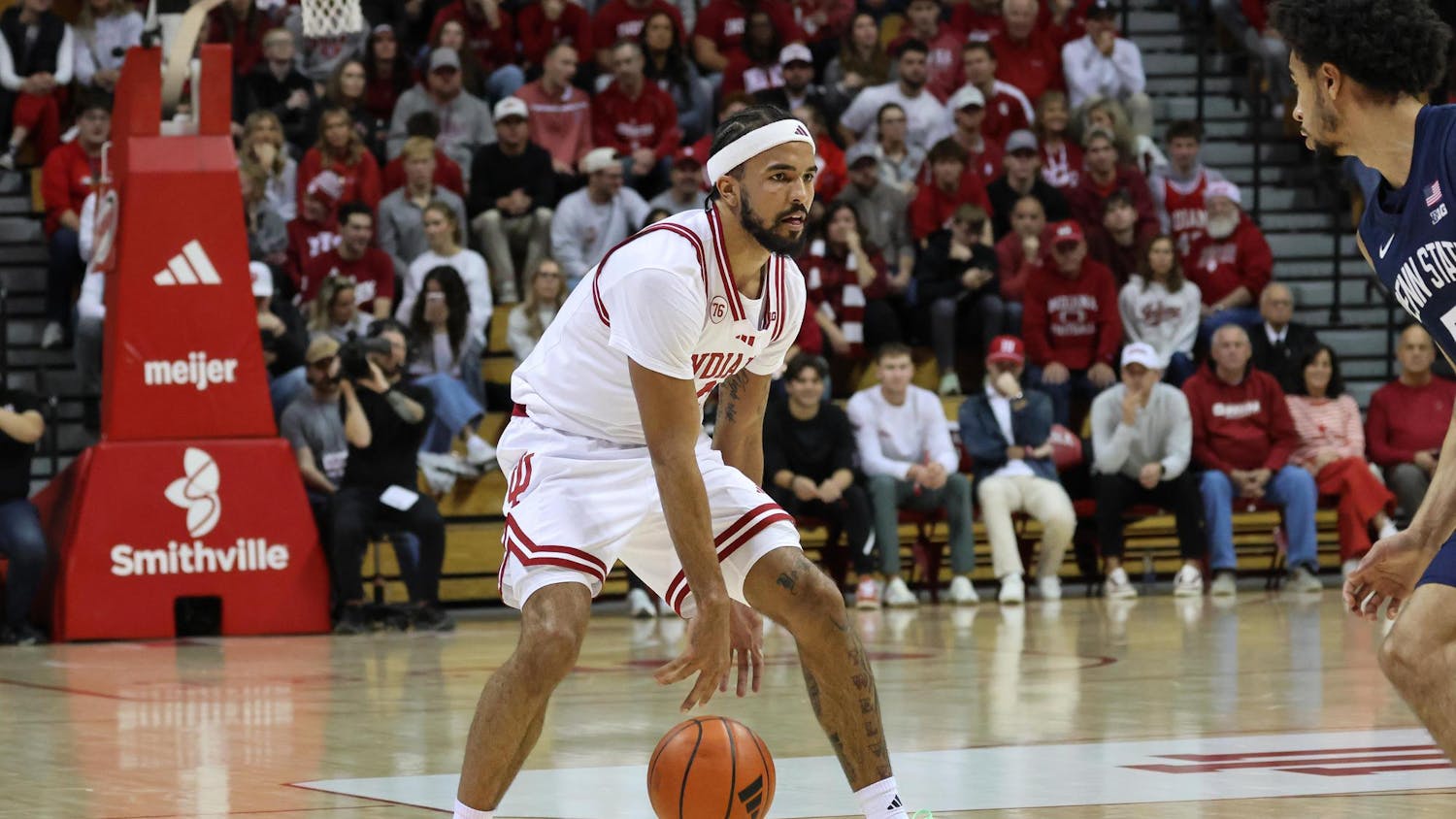People are taking actions to combat behaviors they see as harmful to the environment. As the climate changes and natural resources deplete, it’s necessary for people to take responsibility for, and action against, harmful human behaviors. James Farmer is one of those people.
Farmer, a professor in the School of Public Health, is one of five recipients of IU’s Outstanding Junior Faculty for 2016-2017 award. The award is given to tenure track faculty members, who are working on nationally recognized research.
Farmer researches sustainable behavior and decision-making at the Human Dimensions Lab. The lab researchers concentrate on food and farming systems as well as natural resource sustainability.
Farmer said the research is a collaborative effort between undergraduate, graduate and post-doctoral students as well as many colleagues.
“This isn’t just James Farmer,” he said. “This is a total group effort by really dedicated, brilliant people.”
He and other researchers at the lab work to understand human behavior and how it affects the environment, he said, as this understanding is necessary to develop management and policy tactics to protect the environment.
The researchers are also interested in understanding the perceptions of municipal park professionals pertaining to climate change and how these perceptions affect the general population.
“Municipal parks manage about 50 percent of the urban tree canopy,” he said. “We need to better understand their role in making cities habitable in the future with climate change issues.”
Farmer said if parks aren’t implementing adaptation strategies, individual citizens will be less likely to change their behavior as well. However, if people adopt eco-friendly behavior to diminish the effects of climate change, it is typically a result of them experiencing climate change themselves, he said.
If one is experiencing what he or she perceives to be acts of climate change, they more apt to accept it on an individual level, he said.
Farmer received his bachelor’s, masters and doctoral degrees from IU, but said his passion for nature developed much earlier in his life.
“I grew up playing in the woods,” he said. “I lived in the same house in the woods with a creek in my front yard, until I moved into Willkie my freshman year.”
Farmer said he played outdoors often, if not every day, as a child and was involved in Boy Scouts and Future Farmers of America, so studying natural resources has always made sense for him.
However, he said he had never thought about studying food systems until ten years ago when he listened to “Omnivore’s Dilemma” by Michael Pollan. Farmer said he had recently started considering what he and his family were eating and found the social factors behind food consumption interesting.
He and his wife began attending Community Supported Agriculture events, where people buy food from farmers. Here he met a graduate student who was studying food systems, which made him realize it was a possibility.
“If she can study this, I can study this,” he said. “So, she and I collaborated on a grant to study famers’ markets and CSAs.”
One aspect of food systems Farmer is studying is the barriers that exist for people to attain local food. He said there are two main barriers: cultural and economic.
Farmer said a common critique he and other researchers make of farmers’ markets is that the primary demographic is white, upper-middle class because they typically have more privilege, thus don’t have the limitations lower class minorities have.
“You can improve a system by critically reflecting on a system,” he said. “That’s what we try to do. Local food’s not just panacea. It’s part of a movement to improve food sovereignty, to improve ecological systems.”






